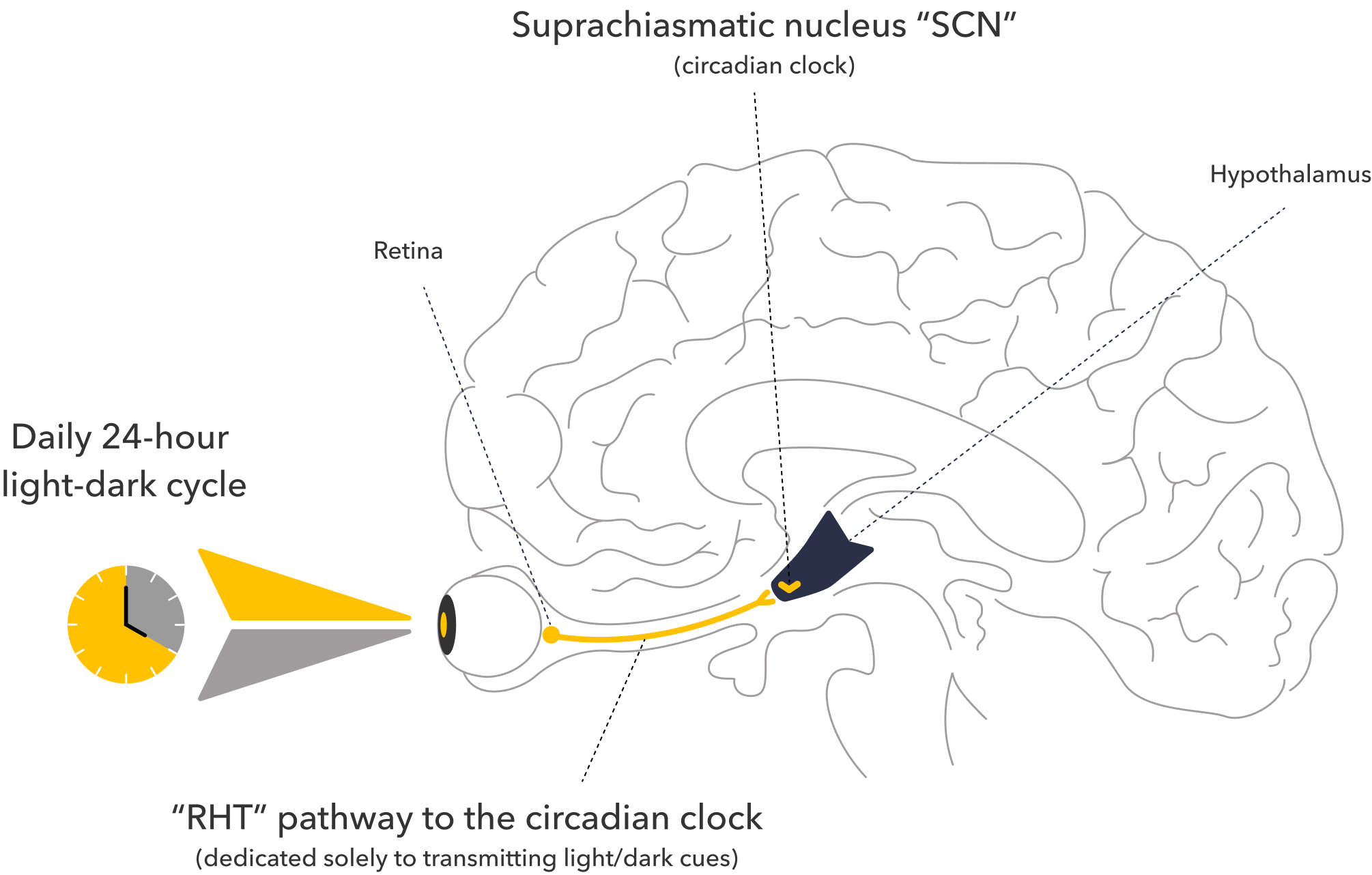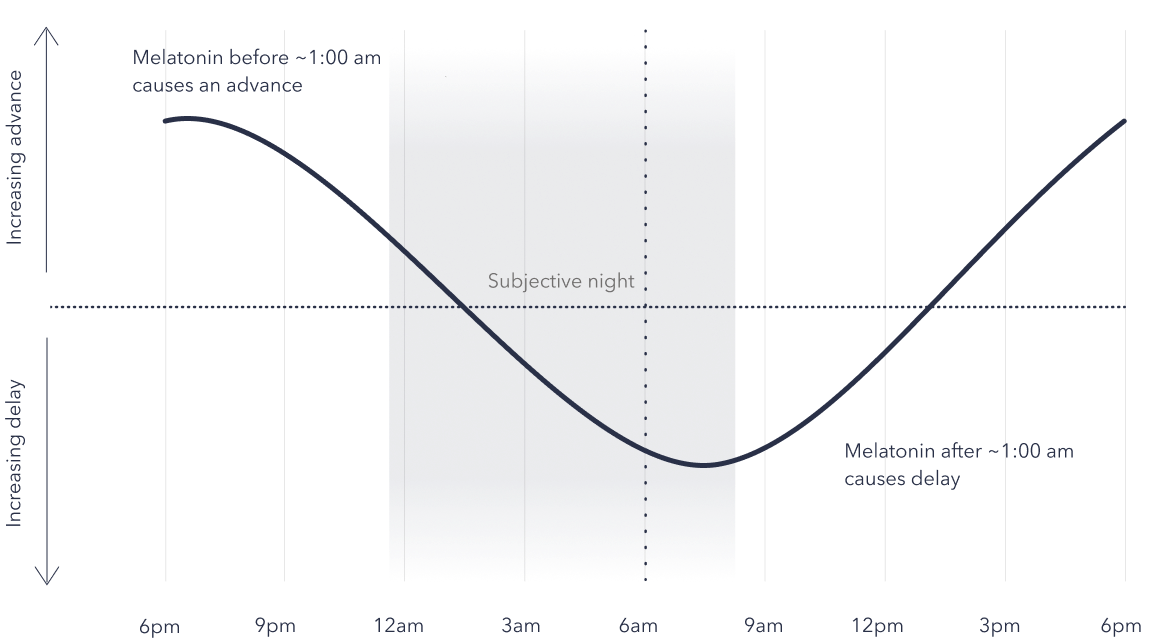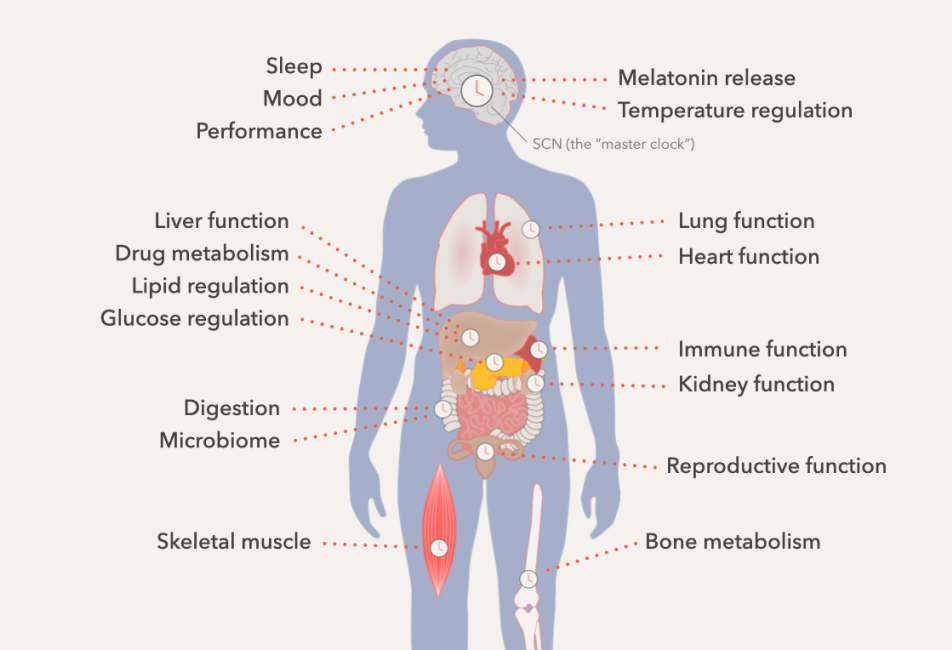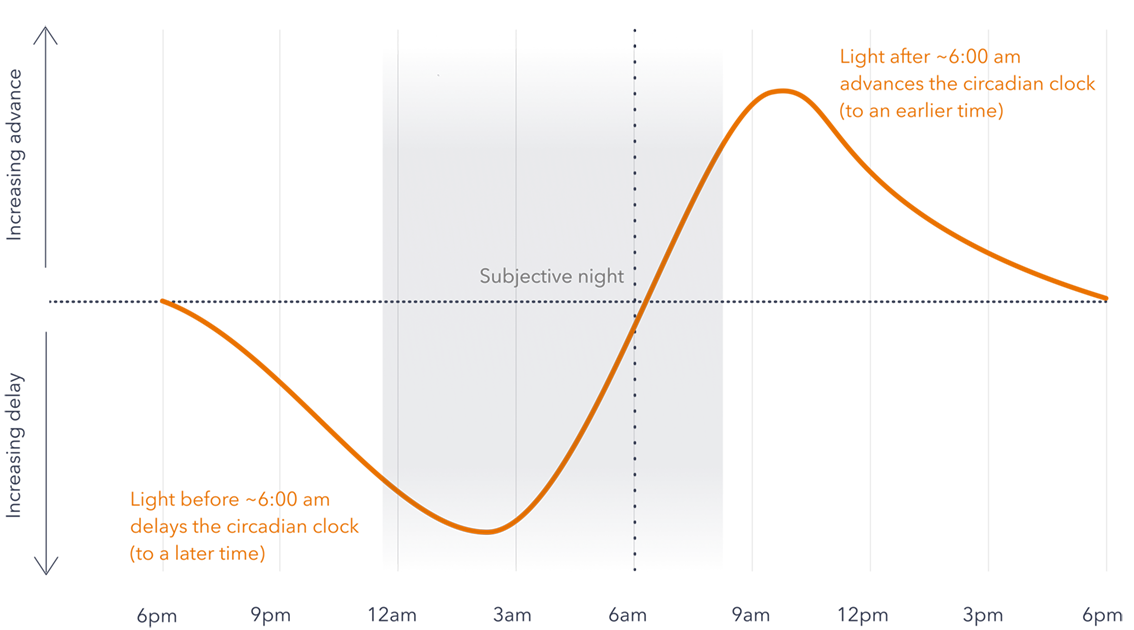The science of jet lag
Travelers are constantly bombarded with bad advice from non-experts and false product claims, resulting in many persistent misconceptions about jet lag and how to alleviate it. It's time to replace the myths with real science.
What is jet lag?
In our brain, we have a circadian clock located in the suprachiasmatic nucleus (SCN). Jet lag is caused when the sleep-wake and light-dark cycle shift too quickly for our circadian clock to keep up.

Jet lag symptoms
Jet lag causes a wide range of symptoms and significant financial costs.
Poor concentration
Compromised safety
Need to leave earlier to acclimatize
Weakened immune system
Reduced performance
Less enjoyment
Recovery time when back home
Long-term health implications
Why is jet lag causing these symptoms?
Our circadian clock regulates almost every biological system in our bodies, so jet lag is disrupting our entire biology — from our sleep-wake cycle, mood and performance patterns to our metabolic, immune, and reproductive systems.
How long does jet lag last?
Jet lag can last anywhere from a few days to a few weeks. As a rule of thumb, symptoms persist for at least 1 day per time zone crossed. The duration of symptoms varies depending on the person, chronotype, direction of travel, and numbers of time zones crossed.
How to get over jet lag quickly?
Surprising to many, light is the most important time cue for “resetting” your circadian clock. Managing when to see light and when to avoid light is critical to adapting to new time zones quickly. The right light exposure and light avoidance at the right time can significantly accelerate your adaptation. Seeing light or avoiding light at the wrong time — as often recommended by non-experts — will shift you in the wrong direction, making your jet lag worse.
Adapt to a new time zone
3-4 times more quickly
Watch Dr. Steven Lockley explain jet lag science. Dr. Lockley is a renowned expert in circadian rhythms, sleep, and jet lag. He has spent nearly 30 years studying circadian rhythms and works with clients such as Formula 1’s elite and NASA.
Astronauts have been
timeshifting for years
Astronauts were the first to timeshift. One of them is former NASA Astronaut, Mike Massimino, who completed two missions to repair the Hubble Space Telescope. Today, he uses the Timeshifter app when he travels internationally.
16 days with jet lag, or no jet lag. You choose.
Let's say you were going to travel from San Francisco to London. You would cross 8 time zones. Each way. Normally, your circadian clock would shift an hour or less per day, resulting in jet lag during the entire trip, as well as 8 days after returning. With Timeshifter, you would adapt 3-4 times faster than normal, dramatically reducing jet lag to a degree where you likely wouldn’t feel any symptoms.

Can melatonin help with jet lag?
In addition to timed light exposure, the right type and dose of melatonin, at the right time, can help you shift faster and sleep better as you are transitioning between time zones. If you take melatonin without timing your light exposure correctly, it will not be as effective and you will not adapt to your new time zone any faster.

Timing is everything
The challenge is to find the right timing for when to see and avoid light, take melatonin, sleep or nap, and use caffeine effectively. Solving this challenge is deceptively complicated, not intuitive, and can only be determined based on your sleep pattern, chronotype, itinerary, and personal preferences. With the Timeshifter jet lag app, you can create personalized jet lag plans with all of this in mind.




















